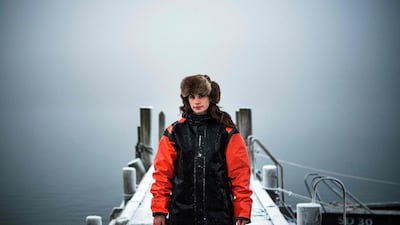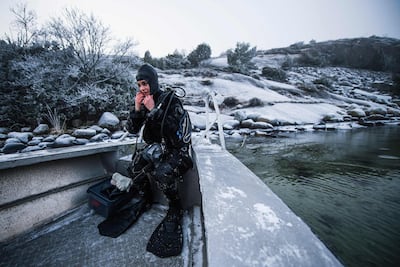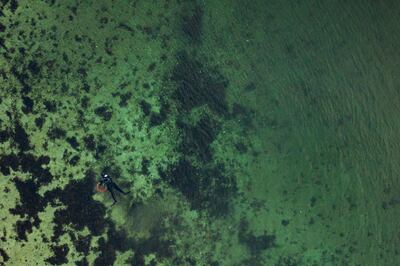On a small boat nosing its way through the frozen waters of the Grebbestad archipelago on Sweden's west coast, Lotta Klemming scans the mist-covered rocks for the perfect spot to find a local delicacy.
While France may spring to mind as a more obvious place to find oysters, the Swedish island group is home to wild Ostrea edulis – a variety distinct in size and flavour from those reared on farms.
The oysters, which can reach up to 11 centimetres in size, have been long admired by connoisseurs in Sweden and in the 17th century the shellfish were collected from the region for the Swedish king's table.
Ms Klemming, 31, is one of a handful of divers in Sweden who plunge into the icy waters in full scuba gear to collect the shellfish year round.
Sitting in the boat, with a heavy fur hat pulled down over her long hair, the diver puts on thick woollen gloves over her drysuit to protect against the cold.
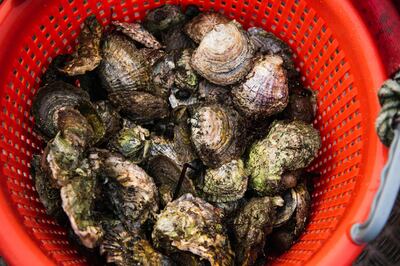
Ms Klemming and her father Peter, who is also a diver, moor the small boat in the shallow waters by a rocky outcrop, check their air tanks and jump into the water with a plastic basket.
"They have a very intense taste – it's not like a new, beginner's oyster," Ms Klemming says.
The oysters' distinctive metallic aftertaste is best paired with a Guinness or stout, Ms Klemming says.
After filling several baskets, the pair heave themselves into the boat, speeding back to their dive house in the village of Grebbestad.
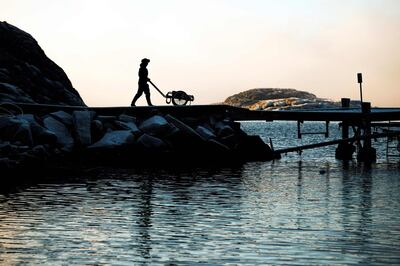
Ms Klemming unloads the oysters and takes them in a wheelbarrow to a nearby beach to clean them with a knife and package them to be sold on to restaurants in Stockholm and Gothenburg, where they retail for about €7 ($8.32) apiece.
She grew up in the village on the coast near the Norwegian border, where her father and uncle work as divers, but she never planned to join the family business.
After leaving to pursue a career in fashion in Gothenburg, she missed the archipelago and six years ago decided to return and try diving.
The career change offered more than a livelihood, she says.
"As a young woman these days, you grow up in a very judgmental world and you constantly feel – or at least for myself – I constantly felt very judged by my looks," she says.
"This is really the opposite of that, no one judges me because of it."
Ms Klemming says she is the only woman diving for oysters in Sweden.
The Covid-19 pandemic was a blow to the business because restaurants that sell her oysters place fewer orders when customers stay at home.
Standing on the small pier in Grebbestad's fog-covered harbour, Ms Klemming says she has no plans to leave.
"One thing I will always do every single week – I want to dive. You can probably compare it with people doing yoga or meditation".
